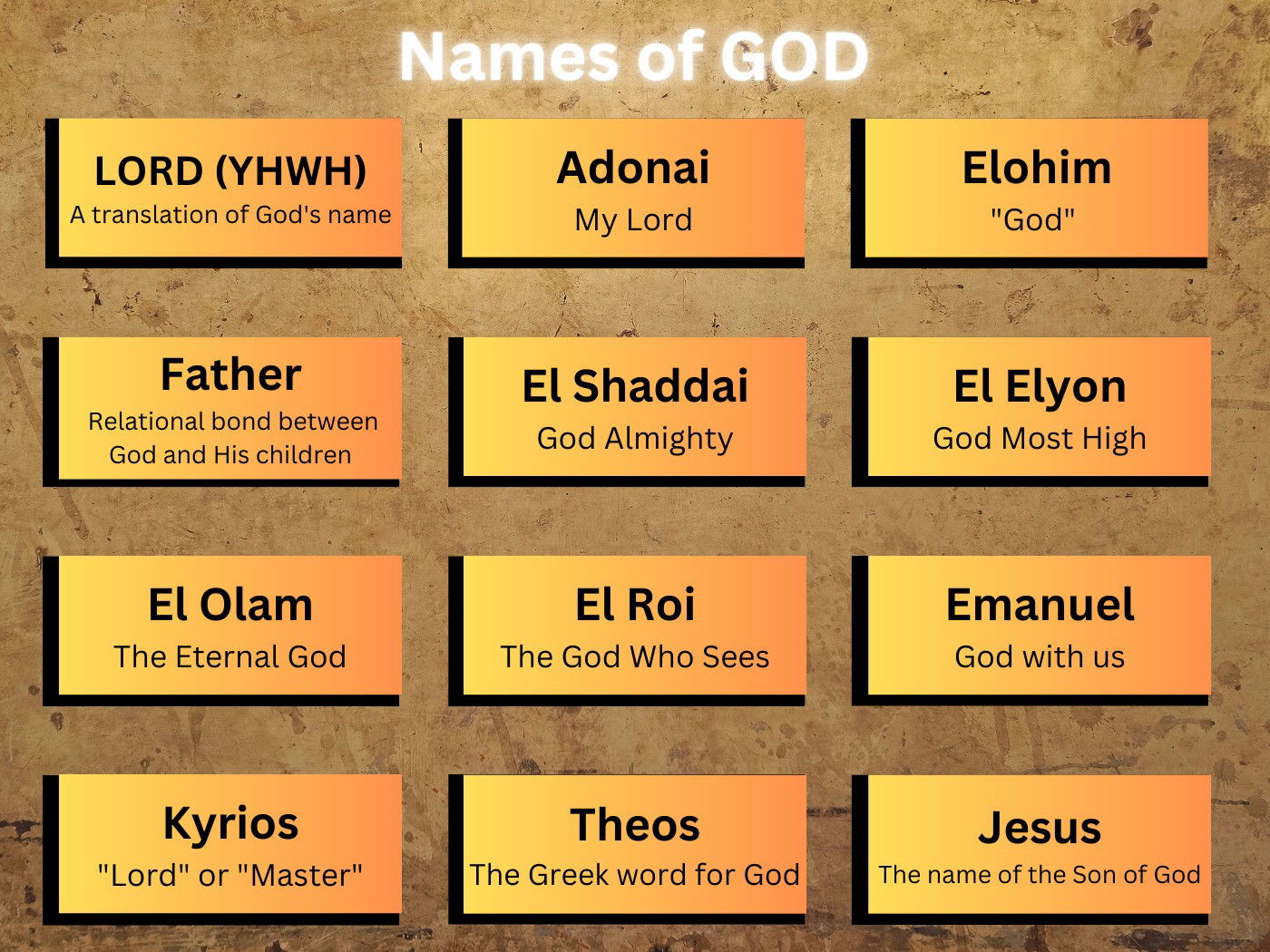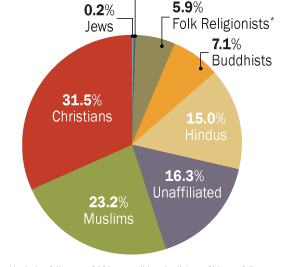
YHWH, Adonai, Elohim: Meaning and Key Facts Explained

The names of God hold profound significance in various religious traditions, particularly within Judaism, Christianity, and Islam. Among these names, **YHWH**, **Adonai**, and **Elohim** are pivotal in understanding the character, nature, and relationship of the Divine to humanity. This article delves into their meanings, historical contexts, and the transformations these names have undergone over centuries. By exploring these names, we aim to uncover deeper insights into the identity of God as perceived through the lens of faith.
As we navigate through the complexities of divine nomenclature, it is essential to recognize how linguistic shifts and cultural changes have shaped the way believers relate to the concept of the Almighty. The evolution from **YHWH** to other designations highlights significant moments in religious history, particularly during landmark events like the Babylonian Exile and the subsequent adaptations in worship practices. This exploration ultimately demonstrates not only the historical significance but also the enduring relevance of these names in contemporary faith contexts.
- Understanding the Names of God
- The Origin of YHWH
- The Revelation to Moses: YHWH in Exodus
- The Impact of the Babylonian Exile
- The Transition from Yahweh to Elohim
- The Significance of Adonai in Jewish Worship
- The Evolution of YHWH to Jehovah
- The Resurgence of Yahweh in Modern Scholarship
- The Meaning of Yahweh
- Historical Context of Yahweh Before Moses
- Conclusion: The Importance of God’s Names in Faith
Understanding the Names of God
**YHWH**, often pronounced as **Yahweh**, is the most sacred name used for God in the Hebrew Bible. It represents the **tetragrammaton** (four letters) and conveys the idea of God's eternal, self-existent nature. In contrast, **Elohim** is a more general term for God, used throughout the Scriptures to signify God’s power and authority as the creator of the universe. **Adonai**, meaning "My Lord," reflects an intimate relationship with the Divine and is frequently utilized during prayers and liturgical settings, maintaining reverence for the sacred nature of **YHWH**.
The Origin of YHWH
The origin of the name **YHWH** traces back to ancient Israelite culture. Scholars generally agree that the name was established in pre-monarchic times, possibly as part of early Hebrew sacred traditions. Linguistically, **YHWH** is believed to derive from the Hebrew root meaning "to be" or "to exist," emphasizing God's unchanging and self-sufficient essence. The name encapsulates a unique quality of God that distinguishes Him not only as the creator but as the sustainer of all existence.
The Revelation to Moses: YHWH in Exodus
In the book of Exodus, God reveals the name **YHWH** directly to Moses. This moment is foundational to the faith of the Israelites, as it signifies a personal and covenantal relationship between God and His chosen people. In Exodus 3:14, God states, "I AM WHO I AM," a declaration aligning with the interpretation of **YHWH** as the one who exists eternally and without need for anything beyond Himself. This revelation marks a turning point, establishing **YHWH** as the defining name of God for the Israelites as they journey toward liberation.
The Impact of the Babylonian Exile
The Babylonian Exile (586–538 BCE) had significant implications for the names of God. During this time, many Jewish practices and beliefs underwent transformation, including the usage of **YHWH**. As Jews found themselves away from their homeland and temple worship, the sacredness of the name **YHWH** led to its avoidance in casual conversation, replaced with the term **Elohim** in some contexts. The emphasis shifted towards a more universal understanding of God's power while safeguarding the sanctity of His personal name.
The Transition from Yahweh to Elohim
The transition from **Yahweh** to **Elohim** represented a broader conceptual shift in Jewish thought. While **YHWH** captured the intimacy and specific identity of God centered around Israel, **Elohim** encompassed a universal perspective, stressing God's sovereignty over all creation. This evolution in nomenclature reflects an adaptive faith, embracing a context that moved beyond particularism to a more inclusive understanding of divine authority.
The Significance of Adonai in Jewish Worship
In synagogue worship, the term **Adonai** has taken prominence as a substitute for **YHWH**. This is done mainly to avoid pronouncing the sacred name out of respect and reverence. **Adonai** conveys a deep sense of lordship and authority, and its use promotes a direct and personal connection between the worshiper's heart and the Divine. During prayer and scripture readings, **Adonai** serves as a reminder of God's sovereignty while maintaining the sanctity that surrounds the name **YHWH**.
The Evolution of YHWH to Jehovah
The name **YHWH** underwent further evolution, leading to the Latinized form **Jehovah** around the medieval period. This change emerged thanks to the work of the **Masoretes**, Jewish scribes who incorporated vowel markings into Hebrew texts. The consonants YHWH combined with the vowels from **Adonai** produced **Jehovah**. Despite its adoption and popularity in certain Christian circles, it is important to recognize that this pronunciation does not accurately reflect the original Hebrew and marks a significant departure from the clear understanding of divine name.
The Resurgence of Yahweh in Modern Scholarship
In the 19th and 20th centuries, there has been a resurgence of interest among scholars regarding the name **Yahweh**. Contemporary linguistic studies and archaeological findings are leading to a fuller understanding of the name's historical importance and its proper application in theological discourse. As scholars dig deeper into ancient texts and contexts, the name **Yahweh** is being restored to prominence and appreciated for its profound significance within the tapestry of faith.
The Meaning of Yahweh
The meaning of **Yahweh** can be interpreted as "He Brings into Existence Whatever Exists," reflecting the active and life-giving nature of God. This understanding not only underscores God’s role as the creator but also emphasizes His sustaining presence throughout history. Recognizing this meaning supports believers in understanding their relationship with the Divine and the implications of having a God who acts within time and space.
Historical Context of Yahweh Before Moses
Interestingly, evidence suggests that **Yahweh** was known prior to the time of Moses. The name appears to be embedded in the fabric of the Israelite identity and can be traced even further back. One notable connection is through Moses' mother, **Jochebed**, whose name is derived from **Yahweh**, indicating the reverence and usage of the name within Hebrew culture prior to the Exodus narrative. Such findings highlight the deep historical roots of **Yahweh** and signify its prominence in the minds and hearts of the Israelites long before its revelation at the burning bush.
Conclusion: The Importance of God’s Names in Faith
The names of God, particularly **YHWH**, **Adonai**, and **Elohim**, encapsulate various dimensions of the Divine and reflect the evolving understanding throughout Jewish history. Each name contributes distinct nuances to theological discourse and personal faith practices. Understanding these names helps believers grasp the richness of their spiritual heritage while acknowledging the sacredness of the names used in worship. As faith continues to evolve, so too does the significance of these names, reminding us of the profound relationship humanity strives to maintain with the Divine.
Incorporating insights from diverse scholarly perspectives enhances our comprehension of the sacred names, urging us to approach them with reverence and awe. Recognizing the complexities and histories of **YHWH**, **Adonai**, and **Elohim** aids in appreciating their roles in the ancient and modern faith communities. Ultimately, the journey through understanding these names leads to a deeper connection with the *black book of questions* that seek to explore the very nature of existence and identity in relation to God.
Did you find this article helpful? YHWH, Adonai, Elohim: Meaning and Key Facts Explained See more here Education.
Leave a Reply






Related posts